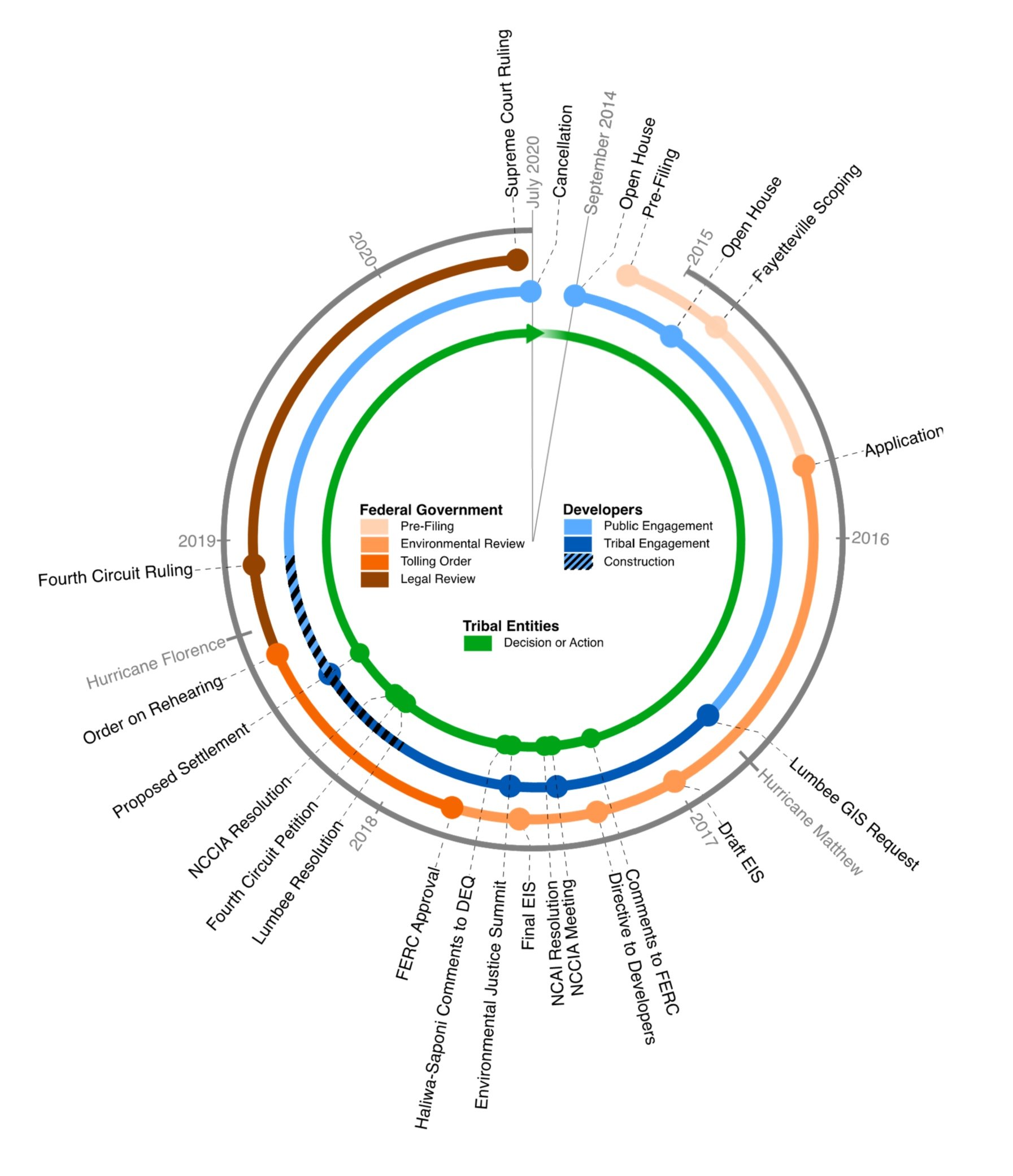Tribal Participation in Environmental Decisions
Ryan partnered with Lumbee political scientist, Dr. David Wilkins to study barriers faced by the Lumbee Tribe and other American Indian tribes during the federal government’s process of reviewing environmental and cultural impacts of the Atlantic Coast Pipeline. The case provided a unique opportunity to study barriers faced by tribes that lack full federal recognition. (Lumbee people were recognized as American Indians by US Congress in 1956, but Congress also prohibited the United States from fully recognizing the tribe as a Native Nation.)
Ryan and David constructed a detailed timeline of the Atlantic Coast Pipeline’s regulatory process and identified four types of barriers to tribal participation: adherence to minimum standards, power asymmetries, procedural narrowing, and “color-blind” planning. Their study was published in a special issue of Water led by faculty at Northwest Indian College, where it was named an Editor’s Choice article.
Detailed regulatory timeline for the Atlantic Coast Pipeline (from Emanuel and Wilkins, 2020).
Select Outcomes
-
Publication: “Breaching Barriers: The Fight for Indigenous Participation in Water Governance” Water (2020)
Talk: “Promoting Indigenous Participation in Environmental Governance” Moriarty Science Seminar, Carnegie Museum of Natural History (2021)
-
Radio Broadcast: The State of Things, WUNC (September 2020)
University Press Release: N.C. Tribes Faced Obstacles to Atlantic Coast Pipeline Water Planning, Study Shows (August 2020)
-
Expanded Atlantic Coast Pipeline educational case study
Supported efforts by tribal governments to develop internal policies and practices around consultation and engagement
